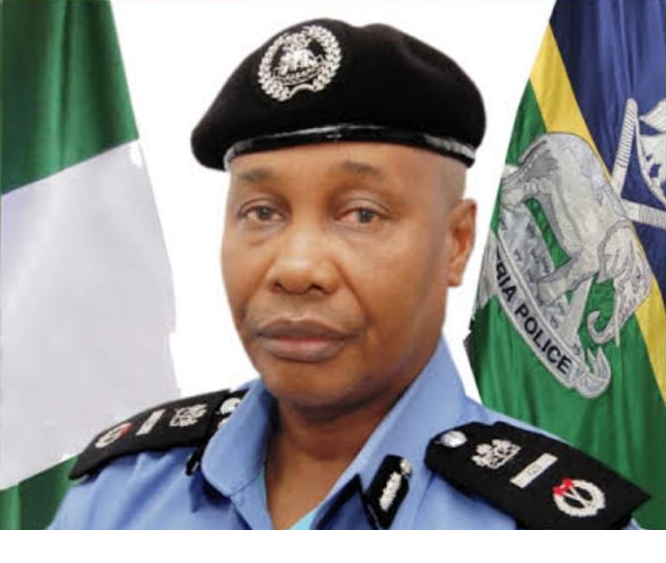Withdraw police protection for private citizens
Reports of members of the Nigeria Police Force and other security details dying in the convoy of Very Important Persons (VIPs) have become routine lately. This is largely because of the growing number of operatives on guard or other special protection duties to privileged Nigerians, including private businessmen and women, public servants and other political […]

IGP Usman Alkali Baba
Reports of members of the Nigeria Police Force and other security details dying in the convoy of Very Important Persons (VIPs) have become routine lately. This is largely because of the growing number of operatives on guard or other special protection duties to privileged Nigerians, including private businessmen and women, public servants and other political office holders, religious leaders, actresses and their children and nannies.
Each new Inspector General of Police (IGP) on assumption of office orders the immediate withdrawal of all police orderlies and security details attached to unauthorised VIPs and firms. But in each case, there is no follow-up, and the business as usual continues.
- Man sets 5 step-children ablaze in Ondo
- Daily Trust economists worried over budget deficit, high debts, naira redesign, present options
In 2015, President Muhammadu Buhari directed that police personnel attached to unauthorised persons and VIPs be withdrawn and deployed to confront the security challenges facing the nation. The breach of the directive has been loud. A majority of the police personnel are still deployed to non-core policing duties.
In February 2018, then Assistant Inspector-General of Police (AIG), Zone 5 in Benin, Rasheed Akintunde, lamented that only 20 per cent of policemen are engaged in core police duties of protecting lives and ensuring peace in the country while “the remaining 80 per cent are providing personal security to some `prominent people’ on guard duty.”
A few days later, on February 11, 2018, the Police Service Commission (PSC) stated that over 150,000 policemen were attached to VIPs and unauthorised persons in the country.
Despite all these revelations, one wonders why many police operatives are still working for individual citizens, a development that has continuously put them in harm’s way. For example, seven people, including three police officers and a lady, were killed during an ambush on the General Overseer of Omega Fire Ministries, Apostle Johnson Suleman, who escaped because he rode in an armoured Sports Utility Vehicle (SUV).
Six weeks earlier, on Sunday, September 11, 2022, in Enugwu-Ukwu, Anambra State, Senator Ifeanyi Ubah’s convoy came under attack by gunmen. Seven people, including five policemen, died in that incident. As Ubah’s spokesman said, “If not for the bulletproof SUV the senator was riding in, he would have been dead by now.”
Also, a female officer, Inspector Teju Moses, while on duty, was assaulted by one Prof. Zainab Abiola, who doubles as a legal practitioner and human rights activist. The policewoman bled profusely and begged to be taken to the hospital. That incident should have embarrassed the police authorities enough to withdraw all policemen attached to individual citizens.
We at Daily Trust strongly condemn the banality of policing through the deployment of police officers for the protection of private citizens, at a time that Nigerians as a collective need police protection the most. Such practises impact the integrity of police officers, demean their position and service to society, and entrench a culture of “bigmanism” and impunity among the more privileged.
Policing is a state service paid for by the state itself through taxes and other revenues, and for the benefit of all Nigerians rather than the exclusive preserve of a few.
Clerics, activists, business people, and others high up cannot be accorded police protection beyond what is available to most Nigerians. People should not be given police operatives just as a mark of their status beyond the offices stipulated by law. Nigeria has a total population of 371,800 officers; considerably low for our huge and growing population. But with the bulk of serving police personnel deployed to non-core policing duties, major parts of the country are unpoliced, leaving majority of the citizens to criminals, terrorists and bandits. This is not good enough, especially for a country battling several security challenges.
The police authorities moved to streamline the commercialization of police duties by establishing the Police Specialized Services Automation Project (POSSAP). In August, the federal government, through the Ministry of Police Affairs, launched POSSAP so that the police would “institutionalise transparency, accountability and entrench quality service delivery to Nigerians.”
The Minister of Police Affairs, Dr Muhammad Maigari Dingyadi, who commissioned the project in Abuja, said it was in line with the memo approved by the Federal Executive Council’s (FEC) on July 2021. He noted that POSSAP would streamline the specialised services already being provided by the police, including specialised escort and guard services.
This would be clearly in contradiction to Section 214(1) of 1999 Constitution of the Federal Republic of Nigeria (as amended), which provided for the establishment of the Nigeria Police Force (NPF). Section 4 of the Police Act empowers it to prevent and detect crime, apprehend offenders, preserve law and order, protect lives and properties of citizens, enforce laws and regulations with which they are directly charged, within or outside Nigeria. Neither the Police Act nor Section 214(1) of 1999 Constitution of the Federal Republic of Nigeria (as amended) allows the police to provide any “specialised escort and guard” duties to individuals.
A situation where police officers are shot and killed or assaulted while protecting private citizens must stop. Private Nigerians who purchase armoured and bullet-proof vehicles for their own security should also pay for the services of private security organisations, not have police officers deployed to them. This practice must stop.
